Final year project
Obio - Domestic greenhouse dehumidifier [Read more]
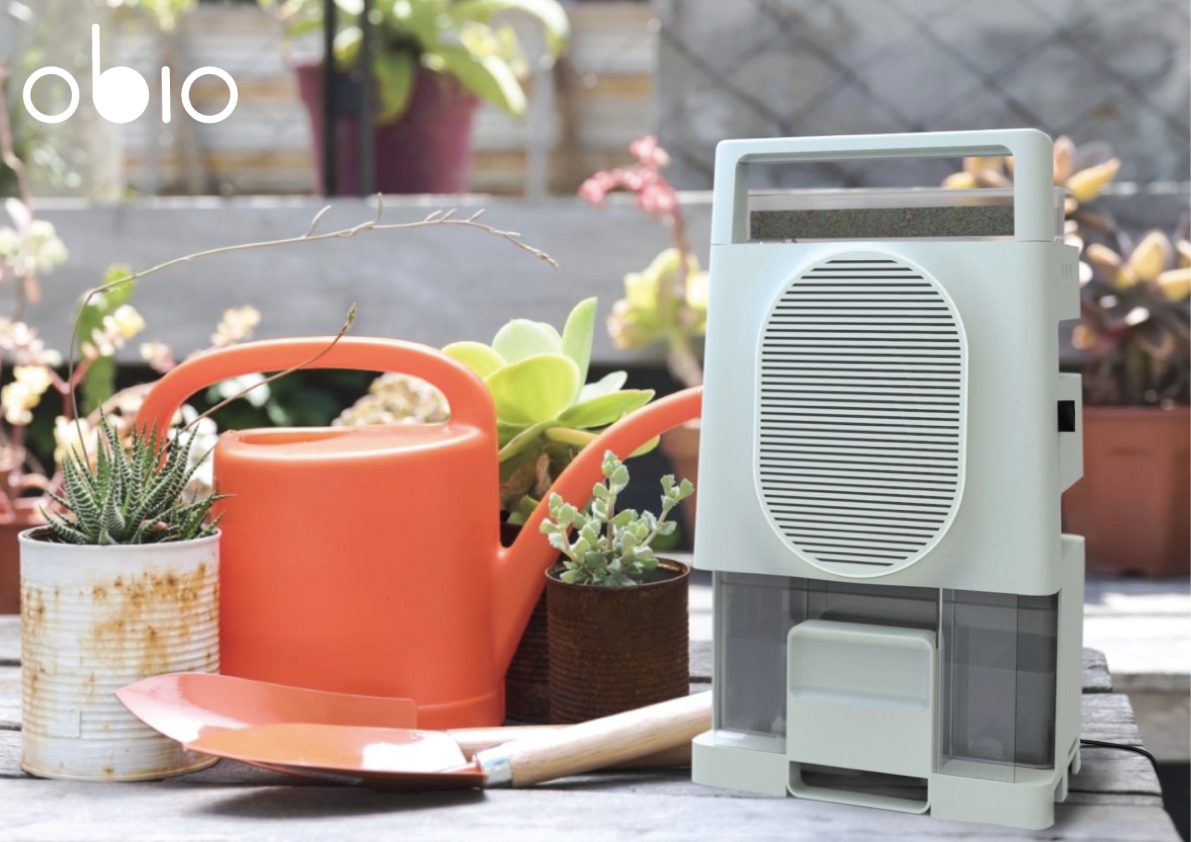
Obio - A domestic greenhouse dehumidifier
Obio is a desiccant dehumidifier for domestic greenhouses. With the growing trend for growing your own food, Obio helps you maintain the perfect ecosystem for growing your crops. Obio is designed for cold humid countries where gardeners often face humidity and temperature issues. Colder temperatures have a lower dew point making it easier for condensation to appear. With cold temperatures and increasing condensation, water droplets frost. These phenomenons occur due to uncontrolled humidity levels and cold temperatures. Preventing condensation from developing is crucial as water droplets carry the bacterias and illnesses killing plants. Frost burns and kills leaves which are vital for plants. To reduce humidity gardeners can ventilate their greenhouse, but this comes with undesirable consequences. Wildlife comes in and damages plants, but also the temperature and ecosystem are disrupted by the two climate differences. Obio enables users to accurately control their humidity level without ventilating their greenhouse.
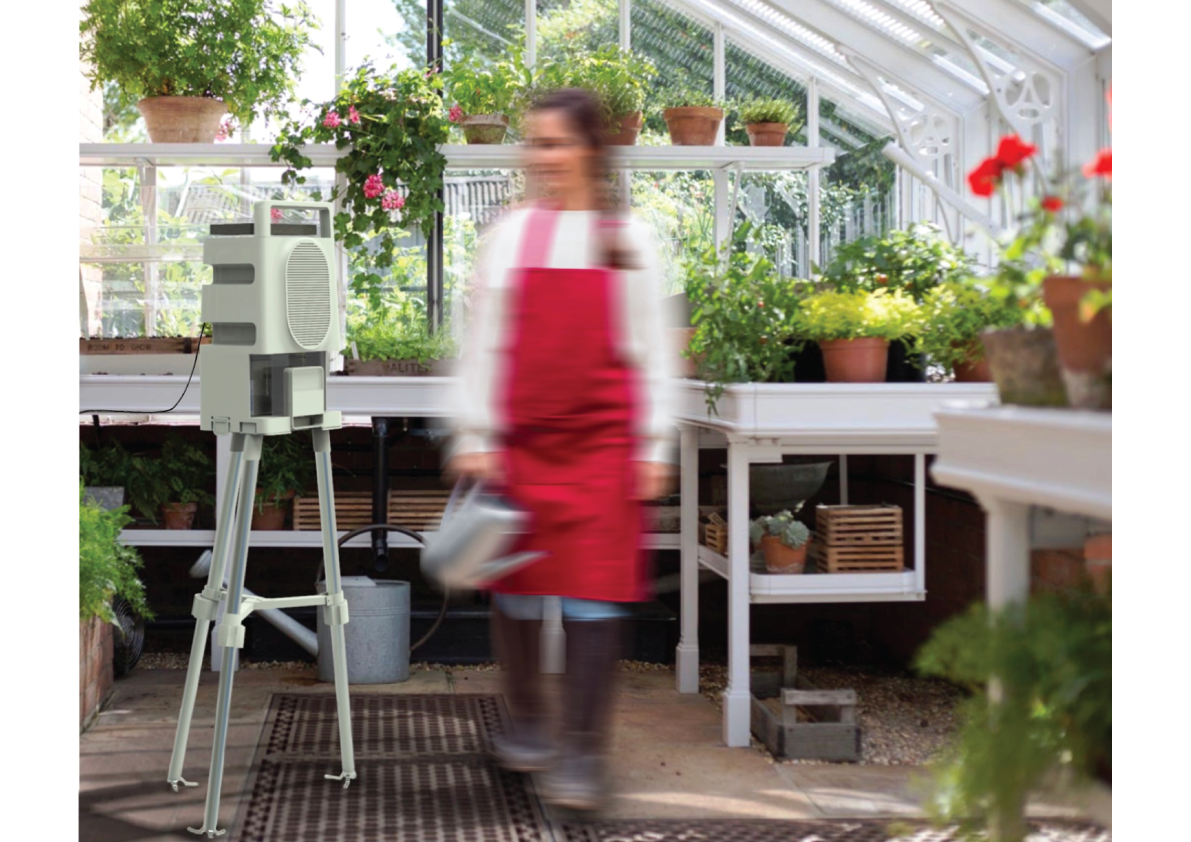

Obio - Helping gardeners
Obio encourages gardeners to grow their own food as it sets the environment at the perfect balance for their plants to grow. This eases the burden for gardeners, as without Obio they would need to check on a very regular basis their greenhouse conditions and weather fluctuations. The greenhouse's environment changes very quickly, making them too reliant on their gardeners. Obio reduces time-consuming checks for gardeners but also improves their well-being as they know their greenhouse is in good hands.
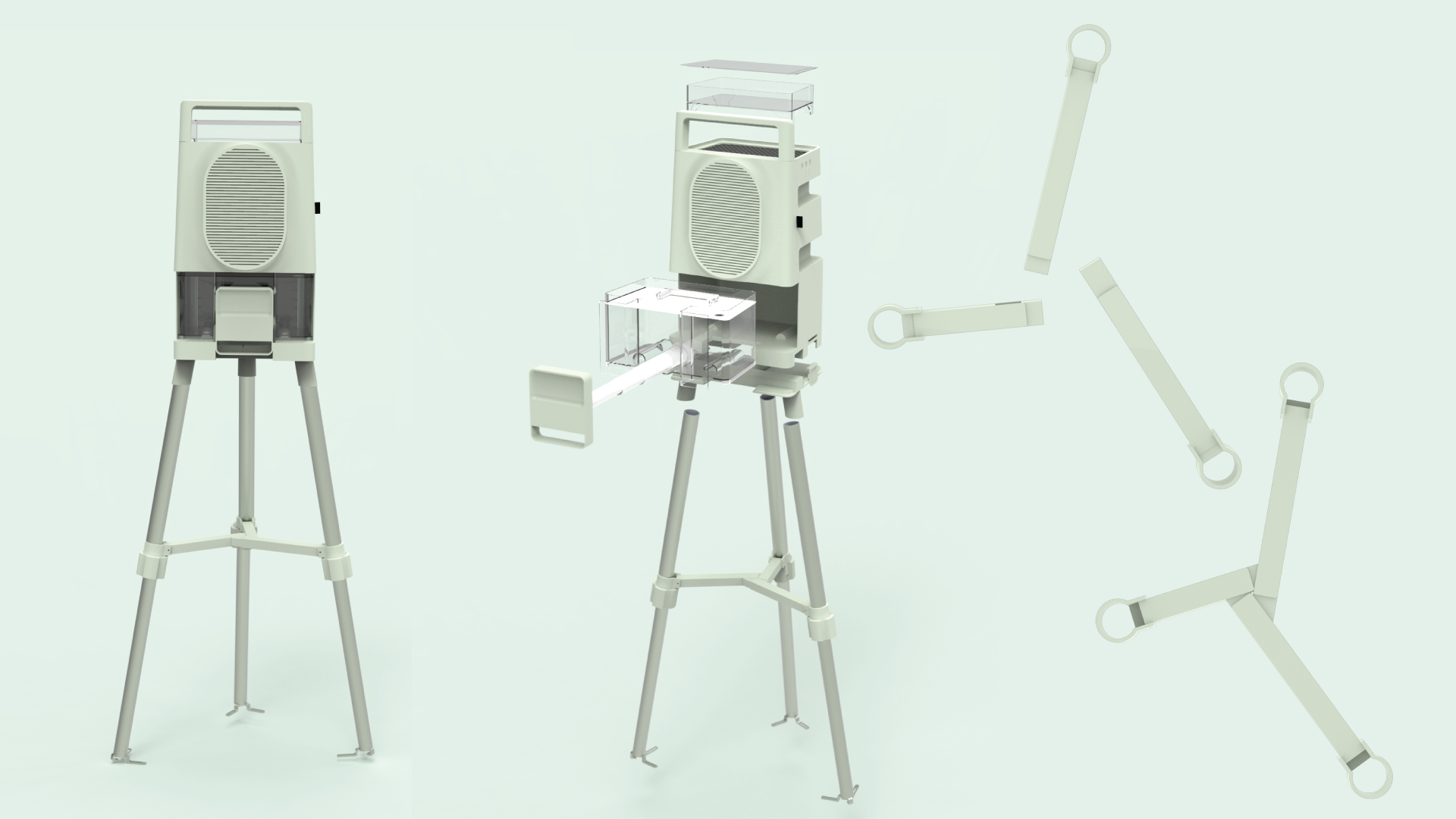

Obio - Different interactions
Obio suits all types of greenhouses thanks to its ability to be installed on flat surfaces or on the floor using its legs. This feature allows complete freedom of use for its users. Moreover, Obio's colour fits easily in greenhouses making it a discreet yet aesthetically pleasing device. The legs are telescopic with feet and stability branches. The telescopic legs allow users to adjust Obio to uneven ground. Obio's feet are designed to adhere well to the ground while adapting to different floors (stones, concrete, soil). Lastly, the legs are easily set up, collapsible and detachable making it easy to store away and user friendly.
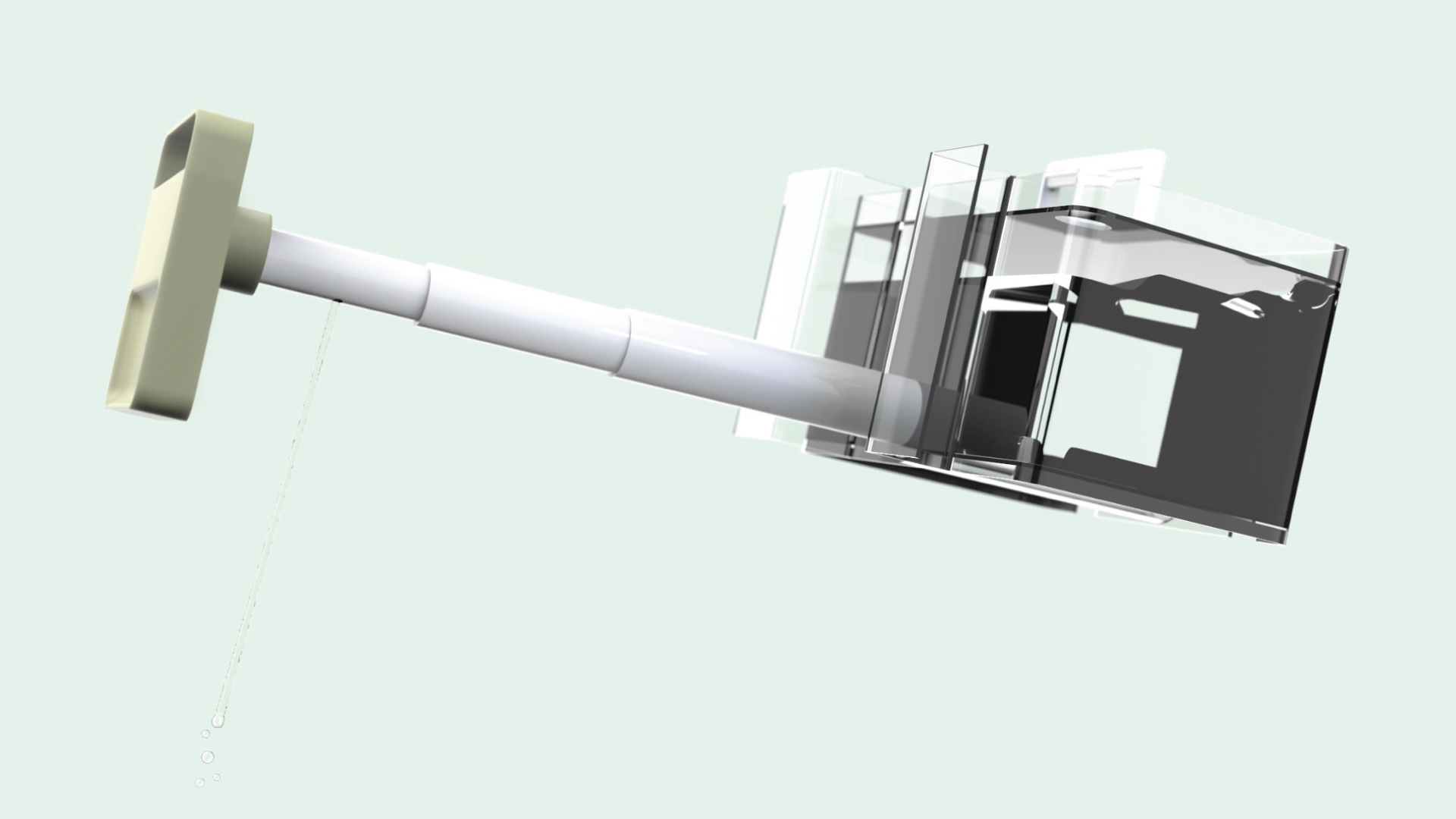

Obio - Sustainability
Thanks to its desiccant technology Obio produces its own water by absorbing water from the air. Obio reduces gardener's potable water consumption and dependence as it acts as a water source in their greenhouse. Potable water from irrigation systems (tap water) is in fact toxic for plants due to chemicals found in potable water are added by water plant treatment facilities. Obio's water is a healthier and greener solution for watering plants as one could consider potable water used for plants as a waste. Obio's water container is designed to be used as a watering can so gardeners can directly and easily water their plants with it.
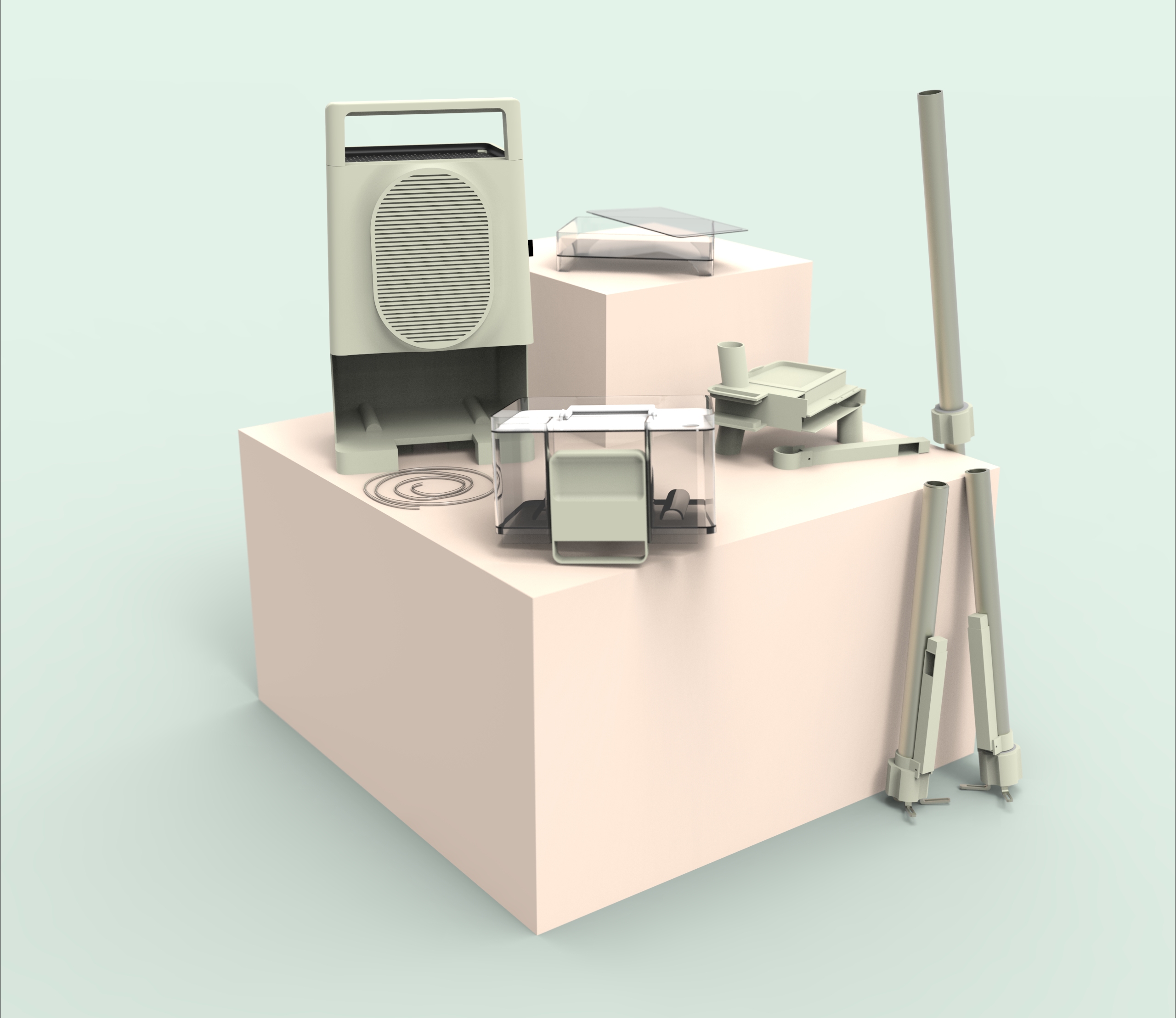

Obio
Obio consists of a water container collecting the water from the air, telescopic legs and a sphagnum moss container. Obio can be continuously drained thanks to a pipe attached to its back. An app alerts its users as to when they should empty the water container and reminds them when they should water their plants. Moreover, it helps the household to better organise day-to-day care of the plants as Obio communicates to each member when it’s time to either water their plants or empty the water container, preventing the responsibility falling on one family member only.
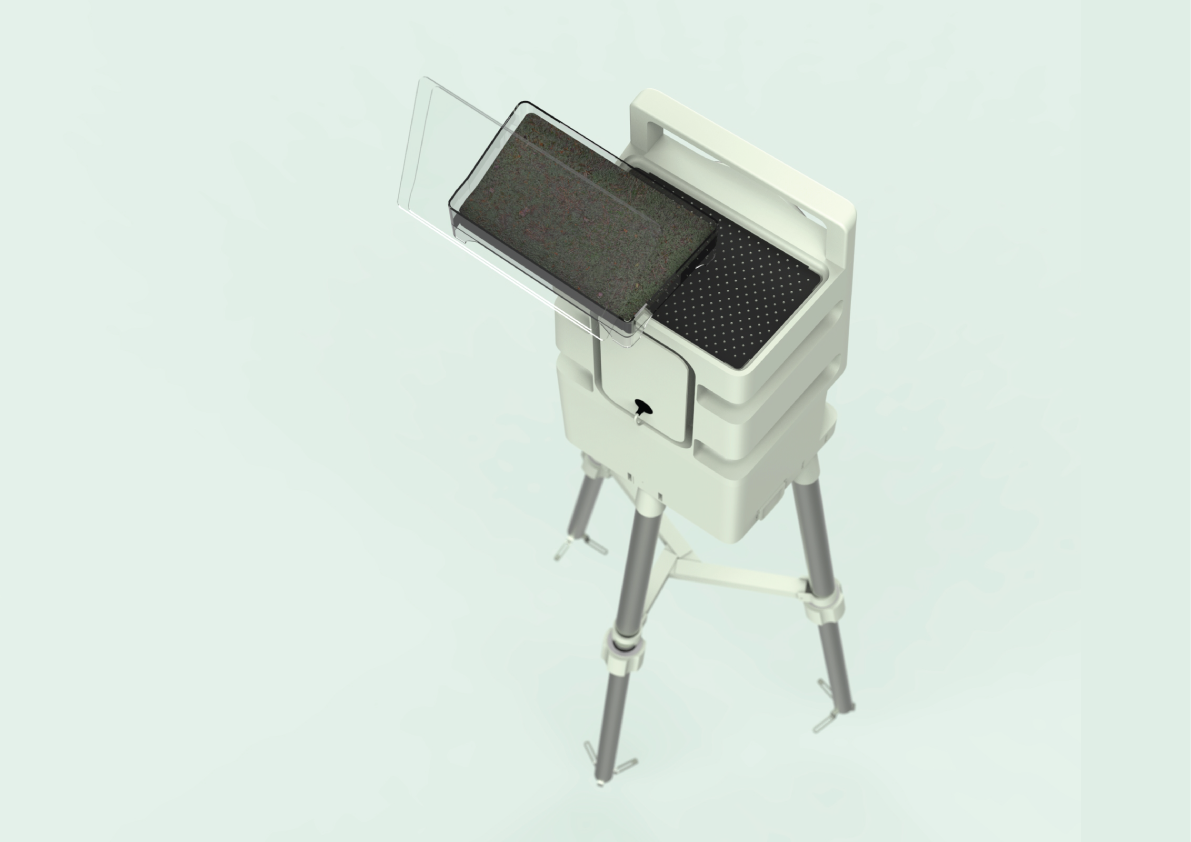

Obio - Producing its own plant
Obio warms the air in the greenhouse as part of its dehumidification process is to heat up its desiccant wheel. Sphagnum moss grows in the container acting like a greenhouse, making it fully isolated and keeping the humidity very high in the container. The heat produced by Obio improves by more than 80% sphagnum moss’s growth while keeping a high humidity. Sphagnum moss is added to plants and crops as it reduces their need for water by 50% and acts as a natural barrier against insects and diseases. As it continuously releases water to the soil, plants do not need to be watered as often or as much, thereby reducing gardeners' participation. Moreover, sphagnum moss prevents plants from being over-watered or dry.
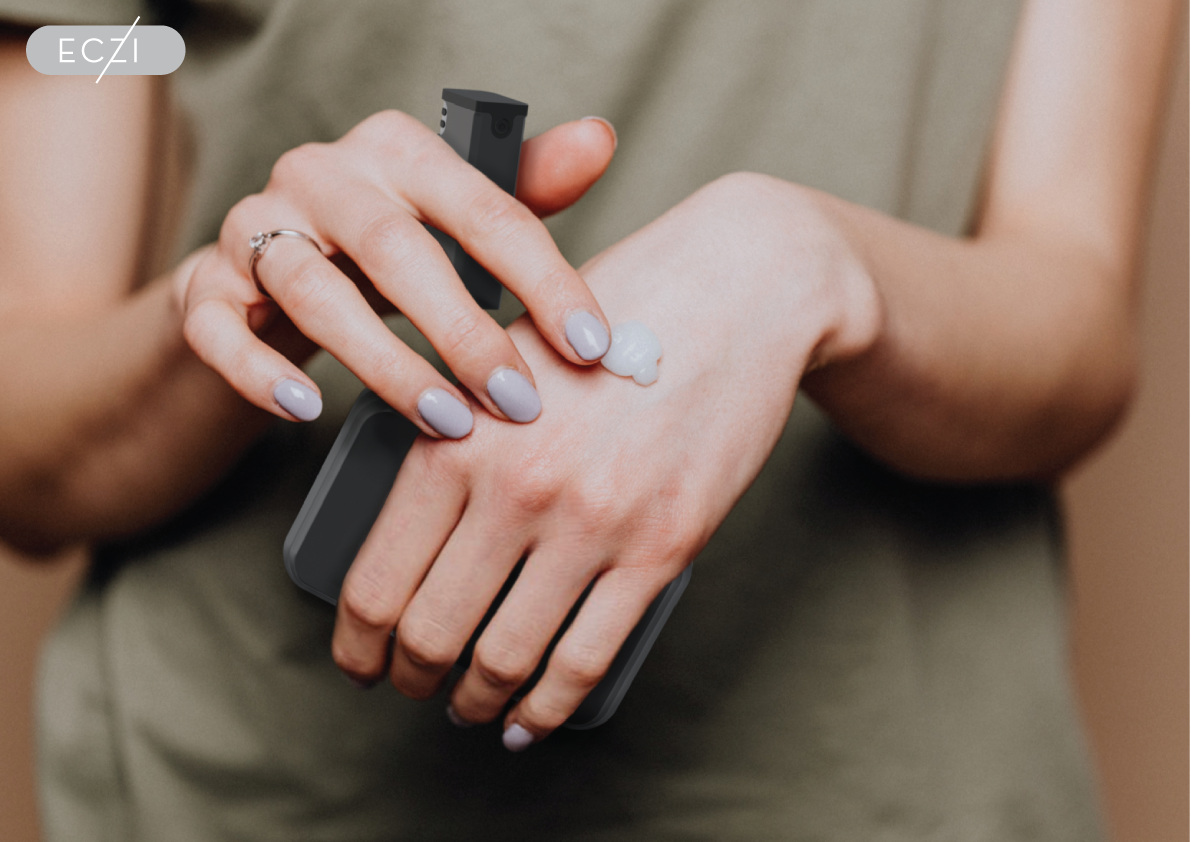

Eczi - For individuals with Atopic Dermatitis
Eczi is for AD sufferers. It acts as a device that aims to assist AD sufferers with their skin conditions and mental health by keeping track of their scratching behaviour and treatment. This IoT device recognises when the user scratches and keeps track of it. It records scratching activity and skin reaction. Eczi will recommend their users apply the cream found in its dispenser, meditate, or apply ice found in its ice container but also if the user wants better tracking, they can fill in a quick survey on their symptoms. By helping users to track and understand what causes their skin to react Eczi reduces the weight AD has on their mental health and acts as mental support and companion for AD sufferers.
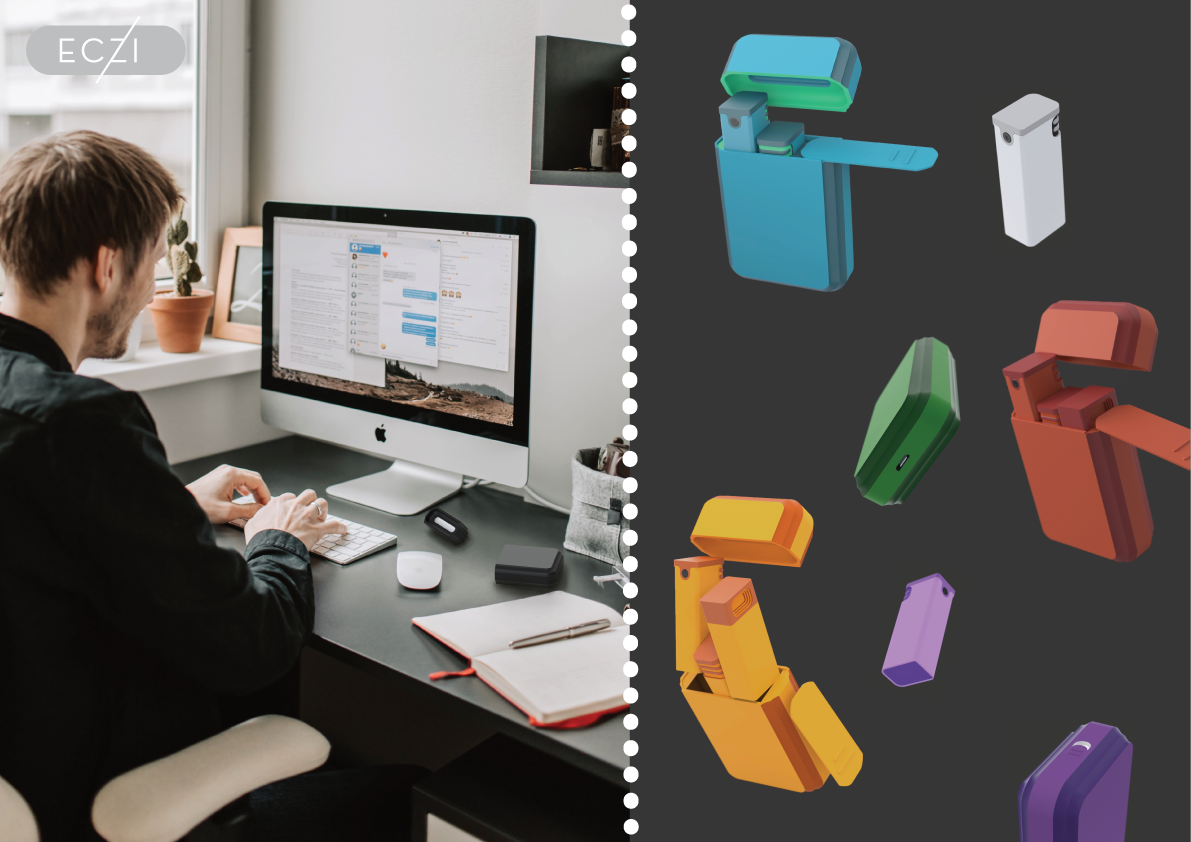

Eczi - For everyone and everywhere
Instead of transporting corticosteroids or hydrating tubes, Eczi allows users to fill its container with their treatments. Eczi prevents creams from being contaminated or overused while being a discreet and practical way to carry treatments. Eczi keeps track of users' treatments and reminds them when to apply their cream and how much to use. Eczi also enables users to keep track of which treatment suits them best as in general AD sufferers will have to go through a lot of different treatments to understand which suits them best. Eczi focuses on mental and physical well-being and its aesthetics suit all environments, making users comfortable to have it around them at any time.
Inès Vaughan
As an international design student I have faced new situations and environments, but I have learned that discovering, learning and interacting with new elements is what motivates me. This applies to my design approach: I thrive on learning and discovering while solving problems in the search for desirable designs.
My work is based on improving well-being and sustainability. I concentrate on improving the lifestyle of individuals not only by designing a solution that replies to their needs but by designing a solution that they would love to use. I focus on creating a bond between the solution and its user, not only through aesthetics and functionalities but by delivering a fully completed service for them. With my final year project, I mixed both well-being and sustainability. My project was aimed at finding ways to enhance food growing in domestic greenhouses. I focused on simplifying the food growing process not only to help existing gardeners but also to motivate individuals to take up gardening. Making the food growing process easier was not the only motivation for my project, as sustainability was also involved. With this project, I aimed to make the food growing process in greenhouses more sustainable by reducing the need for potable water consumption, waste and fertilisers.
Final year project
Obio - Domestic greenhouse dehumidifier
Awards
' 21 Diploma in International Studies (DinS)
'21 Diploma in Professional Studies (DPS)
Work Experience
During my placement year, I worked for an organic cosmetic company. This collaboration allowed me to participate in marketing team strategy, developing my marketing and business skills, while improving my visual communication skills in graphic design. I created web banners and posters which allowed me to develop another branch of design. The placement expanded my overall design skills, leaving me with a richer and more wide-ranging design experience. I realised that my creativity and strong motivation enabled me to easily adapt to new design fields.